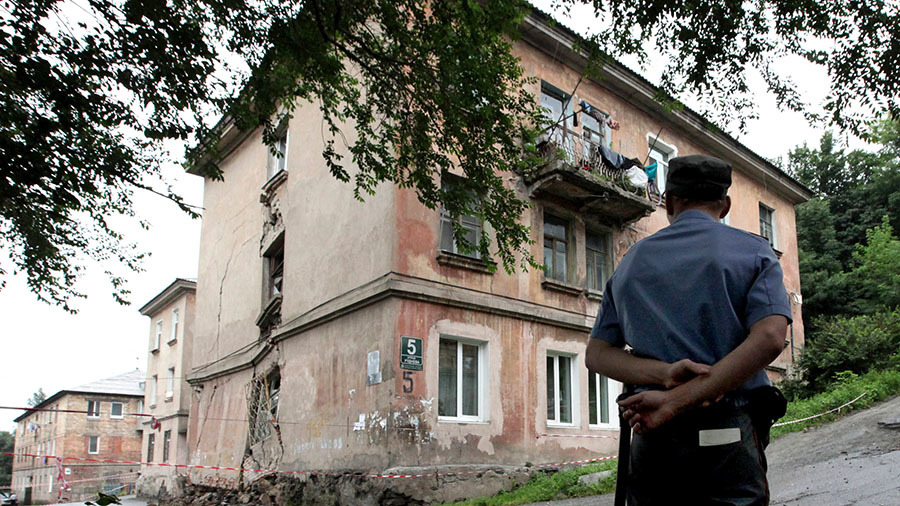The Russian government will additionally send more than 6 billion rubles to the regions to support low-income families with children from three to seven years old.
The corresponding order on Tuesday, December 7, was signed by the Prime Minister of the country Mikhail Mishustin.
“This kind of support is very important.
After all, we are talking about small children who grow up in families where there are material difficulties, ”the head of the Cabinet noted earlier.
In 2021, the authorities have already allocated almost 305 billion rubles for these purposes.
At the same time, as noted in the government, support has become more targeted.
Recall that the accrual of benefits to Russians with children from three to seven years old started back in June 2020.
At that time, all families with incomes below the regional subsistence level were paid the same amount - 50% of the subsistence level for children.
The national average was 5.5 thousand rubles.
In 2021, the authorities decided to change the procedure for granting benefits and tie payments to the level of family income.
Now, if after receiving a payment in the amount of 50% of the subsistence minimum per child (about 5,650 rubles in 2021), the average per capita family income still remains below the subsistence minimum per capita (11,653 rubles), the amount of the benefit is increased to 75% (about 8475 rubles).
If this is still not enough, the amount of the payment will be increased to 100% of the subsistence minimum per child - 11,300 rubles.
During the pandemic, it was parents with children who became the most vulnerable category of citizens, says Georgy Ostapkovich, director of the Center for Market Research at the Institute for Statistical Studies and Economics of Knowledge at the Higher School of Economics.
According to him, against this background, Russia is following the global trend and is increasing support for the least protected groups of the population.
“When children are born, family expenses increase significantly, while incomes do not grow at the same rate.
As a result, the burden on the family budget increases, which can negatively affect the well-being of children.
To avoid such a scenario, the government takes on some of the tasks of providing for such families, "Ostapkovich said in a conversation with RT.
According to the expert's assessment, given the ongoing pandemic, low-income families with children will continue to need government support.
In these conditions, the authorities can continue to allocate money for material assistance in 2022, the economist did not rule out.
RIA News
© Ilya Pitalev
Mikhail Mishustin also ordered to allocate more than 100 billion rubles to the regions for the accelerated resettlement of citizens from emergency housing.
The money for these purposes will come from the government reserve fund.
“Many citizens will be able to move to modern and comfortable apartments and houses, which will have a beneficial effect not only on their living conditions, but will also help achieve the national development goals set by the President,” the Prime Minister said.
At the moment, the process of resettlement of emergency housing in Russia is already going ahead of schedule.
This was announced on December 6 by Deputy Prime Minister Marat Khusnullin.
“We are building for residents of emergency houses 137% of the number of people more and 127% of the plan of physical square meters.
This is due to advanced construction and a number of measures that have been taken to support the resettlement of hazardous housing, ”Khusnullin emphasized.
According to the government, the allocation of additional funds will resettle people from almost 2 million square meters.
m of dilapidated housing.
Moreover, Russia is planning to launch a new program to improve the living conditions of Russians living in emergency houses.
The corresponding instruction was given by President Vladimir Putin at the end of September.
“I have said many times, I want to emphasize again: we need to get people out of the slums.
In this regard, it is necessary to launch a new program, which will include houses recognized as emergency in January 2021, ”the head of state emphasized.
RIA News
© Vitaly Ankov
According to Georgy Ostapkovich, over the past 30 years, a significant fund of emergency housing has been formed in Russia.
As the expert emphasized, living in such houses negatively affects the health and performance of citizens.
In turn, the resettlement of Russians will partially increase labor productivity in the country and, at the same time, improve the situation in the construction industry.
Economist Nikita Maslennikov, head of the “Finance and Economics” department of the Institute of Contemporary Development, adheres to a similar point of view.
“Poor housing conditions are one of the main problems in the country.
The money will be primarily used to resettle citizens in a number of the most problematic regions.
It will also spur the construction market throughout the country, ”Maslennikov concluded.

